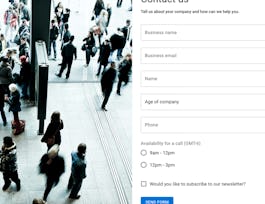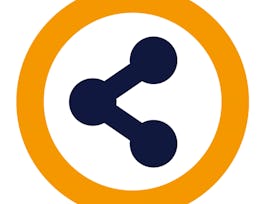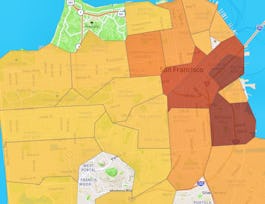Since Antiquity, scholars have appreciated the importance of communication: as social beings, we cannot exist without communication. We need to interact with people around us, to make sense of the world and to position ourselves in a wider social and cultural reality. In this course, we look at how and why communication evolved as a science and reflect on today’s dominant paradigms. The course also extends beyond the boundaries of communication science itself, exploring dimensions of history, sociology and psychology. Join our class, together with people all over the world.


Introduction to Communication Science
Taught in English
Some content may not be translated
133,487 already enrolled
(1,839 reviews)
Details to know

Add to your LinkedIn profile
9 quizzes
See how employees at top companies are mastering in-demand skills


Earn a career certificate
Add this credential to your LinkedIn profile, resume, or CV
Share it on social media and in your performance review

There are 4 modules in this course
In this introduction to the course I will briefly introduce the field of communication science and discuss some basic models that will serve as guidelines to the rest of the course. Also, they explore the historical roots of the science of communication. I will discuss the development of communication theory and the evolution of the media landscape in Antiquity, Medieval and Early Modern times.
What's included
16 videos8 readings2 quizzes
The linear effect-oriented approach is discussed and how it developed in the twentieth century. Evolving from a belief in all-powerful effects after World War I to a more nuanced negotiated effects perspective in the sixties.
What's included
16 videos3 readings2 quizzes
This covers theoretical approaches that understand communication processes as social and cultural forces, as building blocks of reality, and a binding element of power in society.
What's included
16 videos2 readings1 quiz
What's included
1 video2 readings4 quizzes
Instructor

Offered by
Recommended if you're interested in Governance and Society

Coursera Project Network

Erasmus University Rotterdam

Tecnológico de Monterrey

University of Illinois at Urbana-Champaign
Why people choose Coursera for their career




Learner reviews
Showing 3 of 1839
1,839 reviews
- 5 stars
77.91%
- 4 stars
17.02%
- 3 stars
3.59%
- 2 stars
0.70%
- 1 star
0.76%

Open new doors with Coursera Plus
Unlimited access to 7,000+ world-class courses, hands-on projects, and job-ready certificate programs - all included in your subscription
Advance your career with an online degree
Earn a degree from world-class universities - 100% online
Join over 3,400 global companies that choose Coursera for Business
Upskill your employees to excel in the digital economy
Frequently asked questions
Access to lectures and assignments depends on your type of enrollment. If you take a course in audit mode, you will be able to see most course materials for free. To access graded assignments and to earn a Certificate, you will need to purchase the Certificate experience, during or after your audit. If you don't see the audit option:
The course may not offer an audit option. You can try a Free Trial instead, or apply for Financial Aid.
The course may offer 'Full Course, No Certificate' instead. This option lets you see all course materials, submit required assessments, and get a final grade. This also means that you will not be able to purchase a Certificate experience.
When you purchase a Certificate you get access to all course materials, including graded assignments. Upon completing the course, your electronic Certificate will be added to your Accomplishments page - from there, you can print your Certificate or add it to your LinkedIn profile. If you only want to read and view the course content, you can audit the course for free.
You will be eligible for a full refund until two weeks after your payment date, or (for courses that have just launched) until two weeks after the first session of the course begins, whichever is later. You cannot receive a refund once you’ve earned a Course Certificate, even if you complete the course within the two-week refund period. See our full refund policy.


